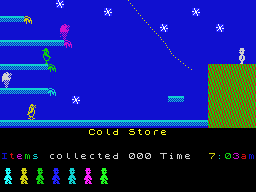halox
Enthusiast
Just a thought. 12 year ago I was using an old IBM with dial-up. At the time it was a great computer and played the latest of games. Then I got another Dell Dimension 9150 with a 7800GTX GPU. It cost me £1500 back in 2005. It was the top of the range at the time. Looking back now and comparing it to what I have today, my old computers, although great at the time are only a fraction of what I now have. Will I look back on today's PC in 10 years time with the same thoughts?
I know PCB technology needs to change to have such a dramatic increase in performance over the next 10 years, as with the current technology it will hit a wall in the next few years. Perhaps Quantum computer's are the way forward. I dread to think how much those will cost. What about GPU's? Will my 1250W power supplies be enough? Back in my IBM the 300W PSU was huge at the time. Will we need 3 -phase supply's to run our PC's. Maybe nuclear fission reactor PSU's are the way forward?
Who knows? Only time will tell. I know something though. Prefixing gadgets names with the letter i is getting old and no longer means "quality". Perhaps a new letter is needed? What about a qphone or a qpad?
What about the download speeds? 12 years ago I was 4kb/s. Then a few years later I was on 2Mb/s. I am now on about 15Mb/s. Fibre is being rolled out in my street soon so I expect to get 50Mb/s by year end. In 10 years will it be 1Gb/s?
I remember watching a movie years ago, and a quote said by Dennis Hopper (Huey Walker) made me laugh. It turned out to be very true. "Once we get out of the 80's the 90's are gonna make the 60's look like the 50's". A great movie by the way. Its called Flashback, one of my all time fav movies.
Food for though!
I know PCB technology needs to change to have such a dramatic increase in performance over the next 10 years, as with the current technology it will hit a wall in the next few years. Perhaps Quantum computer's are the way forward. I dread to think how much those will cost. What about GPU's? Will my 1250W power supplies be enough? Back in my IBM the 300W PSU was huge at the time. Will we need 3 -phase supply's to run our PC's. Maybe nuclear fission reactor PSU's are the way forward?
Who knows? Only time will tell. I know something though. Prefixing gadgets names with the letter i is getting old and no longer means "quality". Perhaps a new letter is needed? What about a qphone or a qpad?
What about the download speeds? 12 years ago I was 4kb/s. Then a few years later I was on 2Mb/s. I am now on about 15Mb/s. Fibre is being rolled out in my street soon so I expect to get 50Mb/s by year end. In 10 years will it be 1Gb/s?
I remember watching a movie years ago, and a quote said by Dennis Hopper (Huey Walker) made me laugh. It turned out to be very true. "Once we get out of the 80's the 90's are gonna make the 60's look like the 50's". A great movie by the way. Its called Flashback, one of my all time fav movies.
Food for though!



